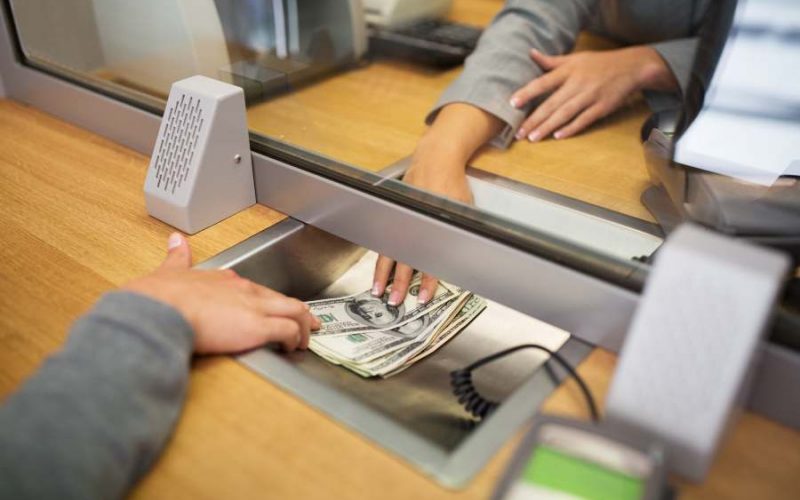Whether you are starting a new business or expanding an existing one, having the right bank and the right banking services is essential for your success. The best bank for small businesses in 2023 will depend on your specific needs and goals. In this article, we will discuss what to look for when choosing a bank for your small business, the types of bank accounts available, the benefits of having a bank account, what documents you need to open a small business bank account, how to choose the best bank for your small business, how many bank accounts you should have, and the best banks for small business accounts and loans in 2023.
Best Banks For Small Business
#1. Chase: The best overall bank for full-service banking.
When you open an account, you will receive a $300 incentive.
Features
- Monthly fees on three checking alternatives are easily waived.
- Point-of-sale (POS) integration
- Only 20 free transactions are available at the basic checking level.
- ATM costs are not refunded.
- Interest rates on savings are low.
- Individual employee debit, deposit, and ATM card settings can be managed.
- Through the mobile app, you may deposit checks, examine account balances, pay bills, and make transfers.
- QuickBooks and other top accounting applications are supported.
#2. Bank of America: The best choice for low cash deposit fees and ongoing rewards.
If conditions are met, a bonus of up to $500 is available, as well as recurring benefits.
Features
- Free online tools for tracking business performance
- With basic business checking, you get 200 free transactions every month.
- Cash deposit fees are levied for $100 in excess of the monthly amount.
- It does not reimburse ATM fees.
- A $100 starting deposit is required.
- With the mobile app, you may deposit checks, examine accounts, make transfers, and pay bills.
- Credit card processing and payroll services are available through ADP Cash Flow Monitor®, a cash management solution that connects accounting, analytics, and payroll apps to assist you in making business decisions.
- Through cooperation with Dun & Bradstreet, you can check your business credit score.
#3. Bluevine: Best High-yield Checking Account
Checking account that earns 1.5% APY on balances of $100,000 or less and integrates with QuickBooks.
Features
- Excellent credit line product
- There are no savings, money market, or CD accounts.
- There are no actual branch locations.
- There is no monthly maintenance fee.
- There is no requirement for a minimum balance.
- A free debit card will be mailed to you within 10 business days of your application being approved.
- Two complimentary checkbook orders per year
- QuickBooks and Xero integration
- Connects to business payment services such as Stripe, PayPal, and Expensify.
- Professionals provide live customer service.
- A credit line is also available.
#4. US Bank: The best traditional bank providing a wide range of business lending products.
Features
- There is no monthly cost.
- Mobile check deposits are free.
- Apply in person, online, or over the phone.
- Only inhabitants of 26 states are eligible.
- Expensive wire transfer fees
- Free transactions are limited.
- Send and receive money with the app
- Integration of digital invoicing and payment methods into your web dashboard
- Mobile app for tracking all of your accounts, transferring funds between them, and depositing checks online.
- For your business, it is simple to integrate overdraft protection or credit card processing services.
#5. Capital One: The best option for unlimited daily transactions.
Features
- Transactions are not limited.
- Simple ATM access
- There is a low or no monthly cost.
- A $250 starting deposit is required.
- Online account opening is not possible.
- The account does not yield any interest.
- With the mobile app, you may pay bills, track accounts, transfer payments, and deposit checks.
- Free overdraft protection when linked to another small business deposit account Integrates with Xero and other leading accounting software
#6. Huntington Bank: The best option for businesses looking for a smaller SBA loan.
Features
- There is no minimum opening deposit.
- Overdraft and Return Fee Relief by Grace®
- There are no monthly fees for the Business Checking 100 account.
- Expensive domestic and international wire transfer fees
- Monthly fees for Unlimited Business Checking and Unlimited Plus Business Checking are waived for high-maintained balances.
- 11 states are geographically constrained.
- Online and mobile banking with a free Mastercard
- Online check deposit, money transfer, and bill payment of $50
- The Safety ZoneSM function allow you to avoid overdraft fees.
- Free desktop check deposit scanner, payroll discount, and free incoming wires are among the added benefits.
- Access to the Huntington SmartTax® service, which allows for quick tax payments.
- Access to financial management tools via The Hub
#7. Mercury: The Best Digital Bank for Incorporated Startups and Tech Firms
Features
- There are no monthly maintenance expenses.
- There are no domestic wire costs.
- On balances of more than $250,000, the Treasury product provides an excellent yield.
- Accounts are not accessible for sole proprietorships or trusts.
- Incapable of writing checks on paper
- There are few financing choices and no cash deposits.
- Features
- Accounts are compatible with major accounting applications.
- Set your team members’ customer user permissions.
- Create account-specific auto-transfer rules.
- Fully compatible with QuickBooks and Xero accounting software.
- If you have more than $250,000 in Mercury accounts and request the Mercury Treasury product, you can receive interest.
#8. Novo: The Best Digital-Only Bank for Faster Payments and Quicker Access to Funds
Features
- There are no maintenance expenses.
- All ATM fees are refunded.
- Novo Boost and Express ACH allow you to access your funds more quickly.
- Inability to deposit money directly
- A scarcity of savings and lending products
- An account with no interest
- Integrates with other business platforms such as QuickBooks, Slack, Xero, Stripe, Square, PayPal, Wise, and Shopify.
- With Novo Reserves, you may set aside money for taxes and other big business needs.
- Checks can be deposited straight through the mobile app.
- Unlimited invoicing and bill pay are included with online banking.
- Novo Boost, in collaboration with Stripe, allows you to access funds more quickly.
- Express ACH allows you to accept or receive ACH payments on the same day.
#9. First Internet Bank: The best choice for full-service digital banking.
Features
- Checking and savings accounts with interest are offered.
- ATM fees may be refunded up to $10.
- There are no monthly maintenance expenses.
- APY is only available with a daily balance of $10,000 or more.
- There will be no cash deposits.
- There are no physical branches.
- Commercial loans and Small Business Administration (SBA) loans
- Other available business banks accounts, such as savings, money markets, and certificates of deposit (CDs), are placed among the top business savings accounts.
- Accounts for individuals
- Accounts for medical expenses (HSAs)
#10. Silicon Valley Bank: The best option for startup resources.
Features
- QuickBooks and other accounting software are supported.
- Flexible financing options for venture-funded companies
- Solutions for global digital banking
- There is no checking account that earns interest.
- After the first three years, monthly costs of $50 are charged.
- Branch access is restricted to 16 states and a few countries throughout the world.
How We Decided on the Best Small Business Banks
When determining the best banks for small businesses, we took several factors into account.
- If there are any monthly fees, how easily may they be waived?
- Minimum starting deposit and balance requirements
- Limits on transactions before fees
- Fees for ACH and wire transfers
- ATM costs and accessibility
- Fees for cash deposits and availability
- If applicable, interest yield
- Other advantages of having a checking account
- Integration of software
- Other business services offered
- Loan products are available.
- Customer care
- Customer feedback
What to Look for When Choosing a Bank for Your Small Business
When it comes to choosing a bank for your small business, there are a few things to consider. The first is the type of services you need. Do you need access to online banking, mobile deposits, or a merchant account? Are you looking for a bank with a wide selection of loan and investment products? Make sure the bank you choose has the services you need to run your business.
The second thing to consider is the fees associated with the account. Banks typically charge fees for various services, such as monthly maintenance fees, overdraft fees, and ATM fees. Make sure to compare the fees associated with different banks to make sure you’re getting the best deal.
The third thing to consider is customer service. It’s important to choose a bank that provides excellent customer service, as you may need assistance with a variety of banking tasks. You should also make sure the bank is easily accessible, either by phone or online.
Finally, it’s important to choose a bank that offers competitive interest rates and low fees. Interest rates and fees can vary significantly from bank to bank, so it’s important to compare the rates and fees associated with different banks.
Types of Bank Accounts Available for Small Business
When it comes to choosing a bank for your small business, there are a few different types of accounts available. The most common type is a checking account, which allows you to make deposits and withdrawals and access funds quickly. Savings accounts are also popular, as they allow you to earn interest on your deposits and access funds quickly.
In addition to checking and savings accounts, there are other types of accounts available for small businesses. These include money market accounts, certificates of deposit, and merchant accounts. Money market accounts allow you to earn higher interest rates on your deposits. Certificates of deposit offer higher interest rates than savings accounts, but you must keep the funds in the account for a specified period of time. Merchant accounts enable businesses to accept credit card payments.
Benefits of Having a Bank Account for Your Small Business
Having a bank account for your small business offers several benefits. First, it makes it easier to keep track of your financial transactions. With a bank account, you can easily monitor your deposits and withdrawals and access your funds quickly.
Second, a bank account can help you save money. Having a bank account allows you to earn interest on your deposits and access lower fees than if you were to use a cash-based system.
Third, a bank account allows you to accept credit card payments. This can help you increase sales and make it easier for customers to purchase your products and services.
Finally, having a bank account can help you establish a good credit rating. Banks report your financial transactions to credit bureaus, which can help you build a positive credit history.
What Documents Do You Need to Open a Small Business Bank Account?
When you’re ready to open a small business bank account, there are a few documents you’ll need to provide. These include your business’s tax identification number, your business’s articles of incorporation, and a copy of your business license. You’ll also need to provide proof of identity and proof of address, such as a driver’s license or passport.
In addition to these documents, you may need to provide additional documents depending on the type of account you’re opening. For example, if you’re opening a merchant account, you may need to provide proof of your business’s processing activity.
How to Choose the Best Bank for Your Small Business
Choosing the best bank for your small business requires some research. You should compare different banks to determine which one offers the services and features you need. Make sure to read the fine print of each bank’s terms and conditions to make sure you understand the fees and other details associated with the account.
It’s also important to consider customer service. Make sure to read customer reviews to get an idea of how the bank’s customer service team operates. Finally, make sure to compare the interest rates and fees associated with different banks to make sure you’re getting the best deal.
How Many Bank Accounts Does a Small Business Need?
The number of bank accounts a small business needs depends on its needs and goals. Generally speaking, it’s a good idea to have at least one checking account and one savings account. This provides your business with access to funds and the ability to earn interest on your deposits.
In addition to these two accounts, you may also need a merchant account to accept credit card payments, as well as a money market account or certificate of deposit to earn higher interest rates on your deposits. The best way to determine how many banks accounts your business needs is to assess your business’s financial needs and goals.
What are the Best Banks for Small Business Loans in 2023?
If you’re looking for a small business loan in 2023, there are a few banks that stand out. Chase, Wells Fargo, Bank of America, and Capital One all offer small business loans with competitive interest rates and terms. Additionally, you may want to consider online lenders such as Kabbage, Fundbox, and OnDeck. These lenders offer quick loan approval and access to funds, but they also tend to have higher interest rates than traditional banks.
Conclusion
Choosing the best bank for small businesses in 2023 can be a daunting task. It’s important to consider the type of services you need, the fees associated with the account, customer service, and interest rates. Additionally, you should make sure to compare different banks to make sure you’re getting the best deal. Finally, you should consider the types of accounts you need and the best banks for small business loans in 2023. With the right bank, you can ensure your business has the resources it needs to succeed.
Related Articles
- HOW DO BANKS MAKE MONEY: All You Need To Know
- FINANCE COMPANY: Definition, Types & Top 10 Companies
- BUSINESS FINANCE SERVICES: Benefits, Sources, and Examples
- HOW LONG SHOULD YOU KEEP BANK STATEMENTS: Well Explained
- 7 Tips for Choosing a Forex Broker





